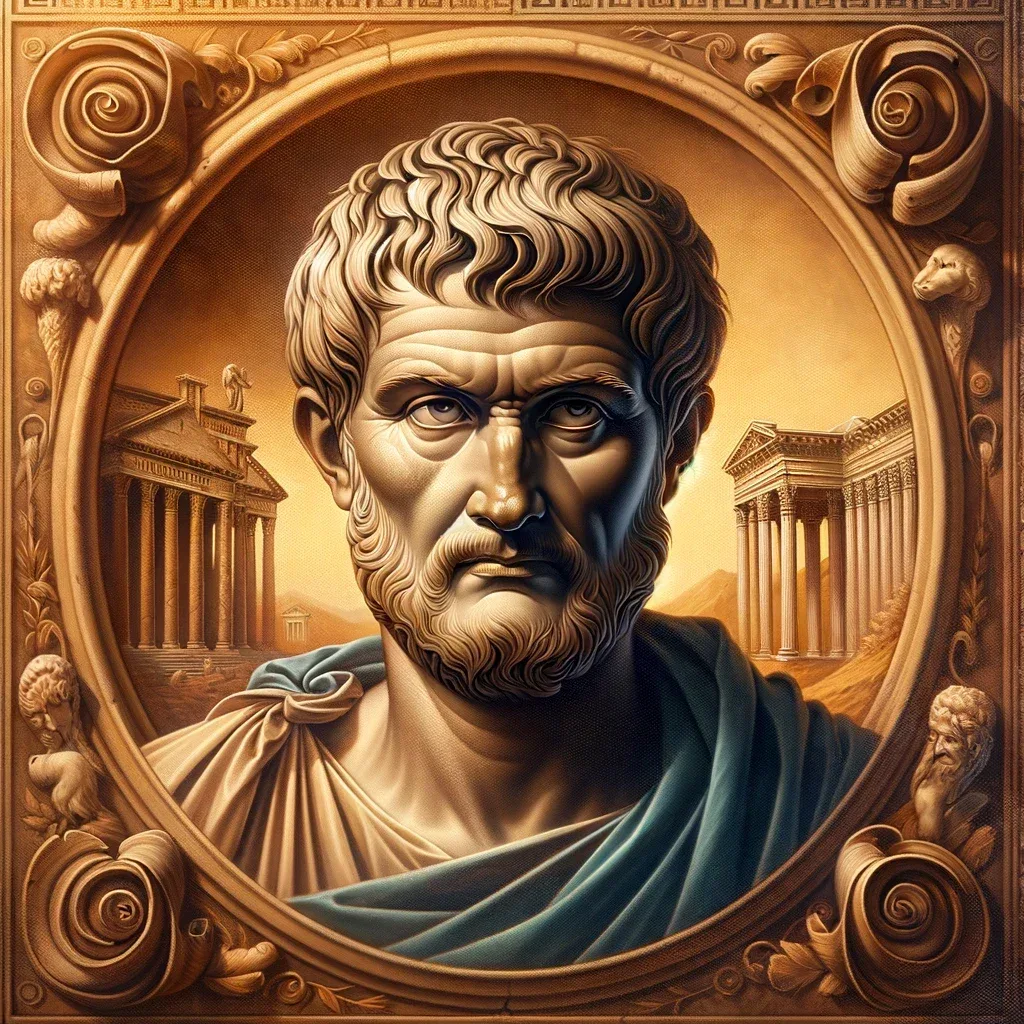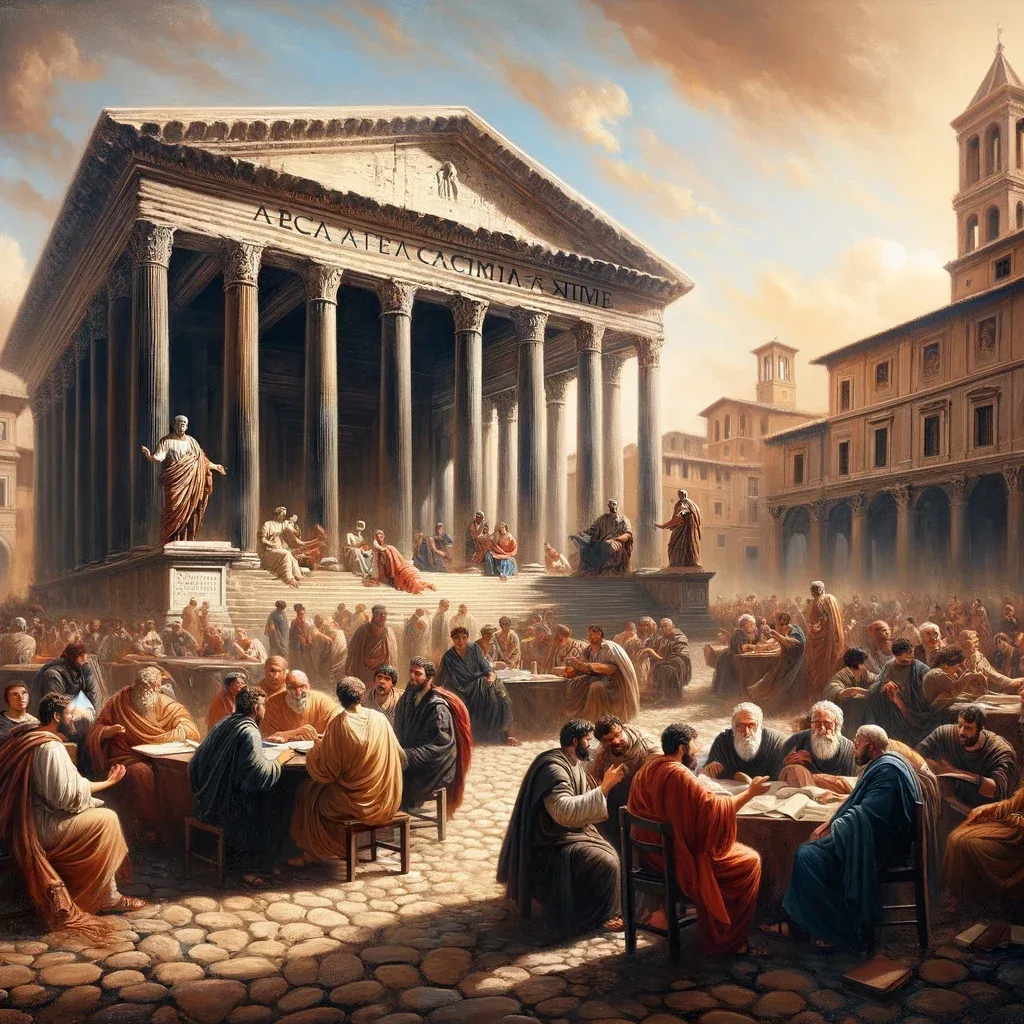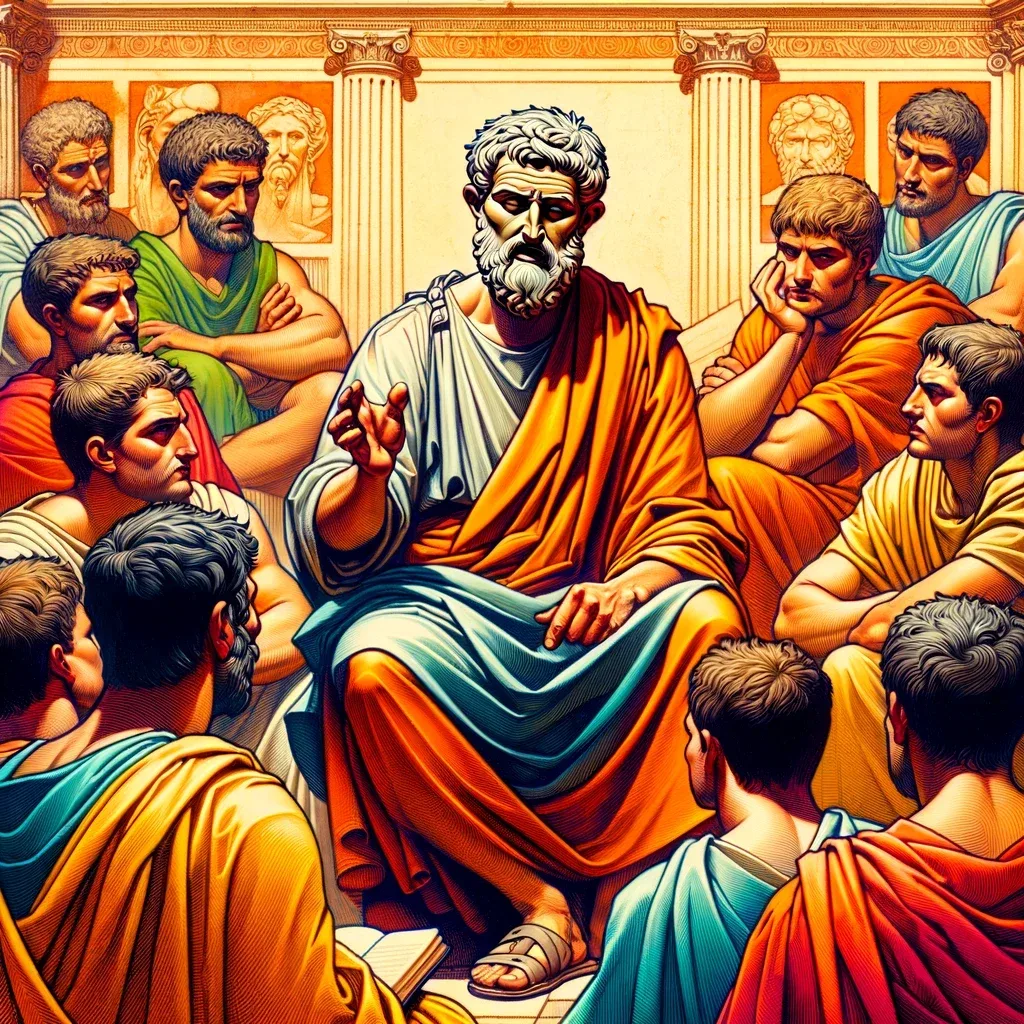Lucius Annaeus Seneca, known as Seneca, is a central figure in Stoicism and Roman philosophy. His life and works continue to influence contemporary thought and ethics. This article aims to explore in depth who Seneca the Stoic was, unraveling his philosophical contributions, his role in Roman politics and his lasting legacy.

Life and Historical Context

Early Life and Education
Seneca was born in approximately 4 BC in Córdoba, Spain, and raised in Rome. From an early age, he was exposed to a diverse education, studying philosophy and oratory, crucial elements in his Stoic formation.
Political Career
In addition to being a philosopher, Seneca was an influential statesman. His political career was marked by ups and downs, including exile and later return to power as an advisor to Emperor Nero.
Conflicts and Exile
Seneca faced several challenges, including exile in Corsica. His return to Rome placed him in a position of power, but also in an environment of intrigue and political danger.
Philosophy and Works

Stoic Teachings
Seneca is best remembered for his contributions to Stoicism. His focus was on topics such as ethics, the nature of good and the role of fortune. He advocated a virtuous life and the pursuit of wisdom above all else.
Main Works
His works, including “Letters to Lucilius”, “On the Brevity of Life” and “On Happiness”, are fundamental to understanding Stoicism. They offer practical insights into how to live a full and meaningful life.
Influence on Literature and Philosophy
Seneca's works profoundly influenced subsequent literature and philosophy. He is often cited and studied for his pragmatic approach and timeless advice.
Seneca and Roman Politics

Relationship with Nero
Seneca served as young Nero's tutor and advisor, but their relationship deteriorated over time. His attempts to guide Nero were often thwarted by the emperor's tyrannical actions.
Contributions and Conflicts
His political experience offered Seneca a unique perspective on governance and ethics, topics frequently addressed in his works. However, his position placed him in direct conflict with the political forces of his time.
Death and Legacy
Seneca was forced to commit suicide in 65 AD, a victim of the political intrigues of the Roman empire. His death symbolizes the complex interaction between Stoic philosophy and political power.
Legacy and Contemporary Influence

Impact on Modern Thought
Seneca's influence extends beyond the ancient world. His teachings on ethics, resilience and moral leadership have relevance in the modern world, especially in areas such as psychology and personal development.
Seneca in Popular Culture
The figure of Seneca continues to be a source of inspiration in popular culture, being referenced in literature, cinema and even self-help and mindfulness movements.
Stoicism in the XNUMXst Century
The revival of interest in Stoicism in the XNUMXst century owes much to the works and ideas of Seneca. His teachings about facing adversity and living a virtuous life resonate with the contemporary search for meaning and well-being.
Conclusion
Seneca the Stoic was more than a Roman philosopher and statesman; he was a thinker whose ideas transcend time and culture. His legacy continues to influence, challenge and inspire. Seneca reminds us of the importance of resilience, ethical reflection, and seeking
continuous wisdom.
Frequently Asked Questions about Seneca the Stoic
This FAQ offers detailed answers to the most common questions about Seneca, his philosophy, and his impact on history and modern thought.

1. Who was Seneca the Stoic?
2. What are Seneca's main works?
3. How did Seneca influence Stoicism?
4. What was Seneca's role in Roman politics?
5. How is Seneca's philosophy relevant today?
6. What is the importance of “Letters to Lucilius”?
7. What ethical themes did Seneca explore in his works?
8. How did Seneca approach the topic of happiness?
9. How did Seneca deal with adversity in his life?
10. What was the impact of Seneca's death?

This FAQ offers in-depth insight into the life, work, and philosophy of Seneca the Stoic and his continued relevance in the modern world.





